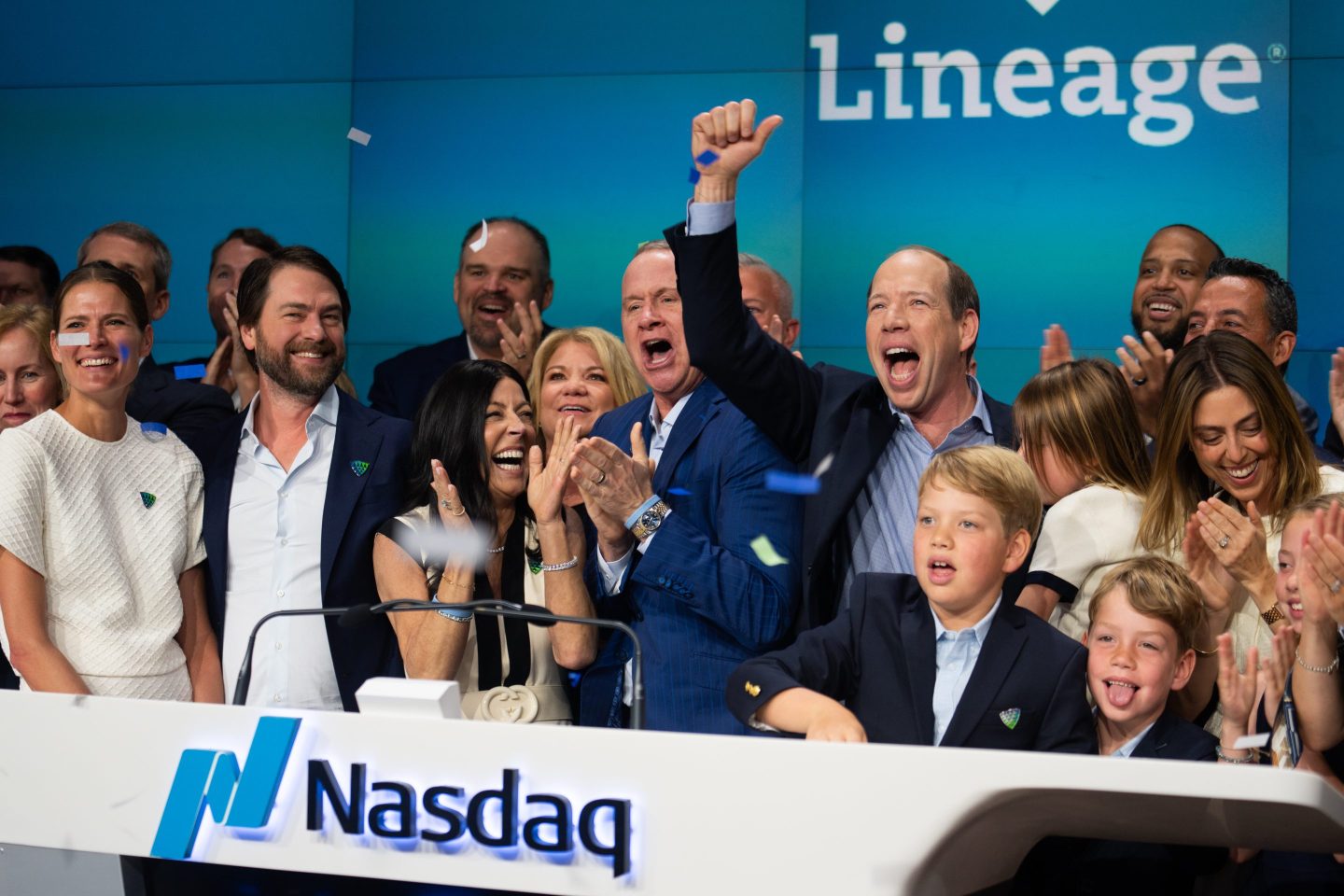Good morning.
Let’s take a break from Big Tech to look at three business models that are thriving right now with real-world products.
On a steamy summer day in New York, a cold-storage company from Michigan racked up the biggest public offering of the year. Lineage raised $4.4 billion yesterday in its Nasdaq debut, selling nearly 57 million shares for $78 each. As befits a man who oversees about 3 billion cubic feet of refrigerated warehousing, CEO Greg Lehmkuhl was notably cool about the hot debut.
“Do I want to do earnings calls every quarter? I don’t,” Lehmkuhl said. “This was about optimizing the cost of capital.” Translation: It’s cheaper to raise money through issuing shares or raising funds as an audited public company than as one that’s private. It’s also easier to spread wealth throughout the company.
It’s notable that Lineage’s growth comes through making tactile products—in this case, building an infrastructure around preserving food. Lehmkuhl is not that worried about a volatile political climate: “People are going to eat, no matter who’s in power.”
People are also seeking ways to connect and make an impact, which bodes well for those who can turn their businesses into a village green. I recently spoke to Tom Nolan, CEO of Kendra Scott, for our Leadership Next podcast. He has helped founder Scott build a billion-dollar jewelry brand by combining affordable luxury and philanthropy. The retail chain hosted some 21,000 events in 134 stores this past year, most of which were rooted in philanthropy where a portion of sales supports a cause.
“We feel like we’re a part of the fabric of the community,” Nolan said, “and it’s because of the events, it’s because of our reach out into the community, it’s because of the charitable nature of our business. We become more than just selling goods to somebody, it’s selling an experience, and it’s selling something greater than that.” (Listen to the podcast here.)
One of the most visionary CEOs I met this week was Taylor Shupe. I know him as the founder of the wildly popular sock brand Stance. (Well, it’s wildly popular in my house, at least.) A few years ago, Shupe left to start circular knitwear manufacturer FutureStitch. Along with trying to create new materials and processes to reduce waste, Shupe is creating a new manufacturing business model that’s addressing a critical social need.
He’s turning a manufacturing facility in California into a campus where formerly incarcerated women can get housing, childcare, services and a job. The goal is to give them the kind of training and support network that most women lose when they go to jail. “It’s like taking an individual who has been treated as if they were a waste product and creating a culture for them to thrive,” said Shupe.
More news below.
Diane Brady
diane.brady@fortune.com
Follow on LinkedIn
TOP NEWS
Can Sequoia maintain its lead?
Roelof Botha, head of Sequoia Capital, is trying to preserve the VC giant’s stellar track record of backing winning companies like Nvidia, YouTube, and Instagram. “It’s much easier to be the underdog,” Botha says. The VC leader is now thinking about a new problem: how to manage AI’s “unsustainable” computing costs. Fortune
OpenAI takes aim at Google
ChatGPT developer OpenAI launched SearchGPT, a new search engine, on Thursday. While still just a prototype available to 10,000 users, the product is a challenge to Google’s long-time search dominance, as well as competing AI startups like Perplexity. Fortune
Why aren’t Americans having kids? It’s the economy
People under 50 without kids are three times as likely as older childless people to blame unaffordability for their decision to not have children, according to the Pew Research Center. Even as today’s young people are able to win higher salaries than their parents, they face higher costs for housing, childcare, and health care. Fortune
AROUND THE WATERCOOLER
Tesla’s latest earnings expose chronically weak profitability and an inflated share price by Shawn Tully
Startup with 'radical' concept for AI chips emerges from stealth with $15 million to try to challenge Nvidia by Jeremy Kahn
Is overtourism inevitable? One expert explains why the phenomenon is a wake-up call and how European cities are getting it wrong by Prarthana Prakash
A post about Kamala Harris pushed a long-simmering feud between tech execs into the open by Paolo Confino
Sundar Pichai wants real-world results for his AI bots—so Google gave bonuses and golden bomber jackets to staff who came up with winning prompts by Eleanor Pringle
This edition of CEO Daily was curated by Nicholas Gordon.














